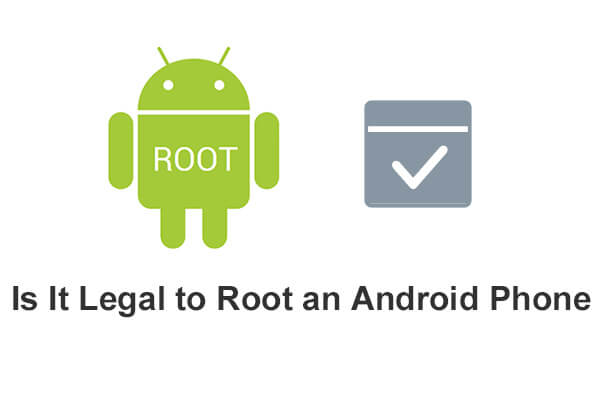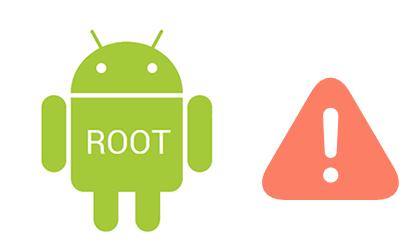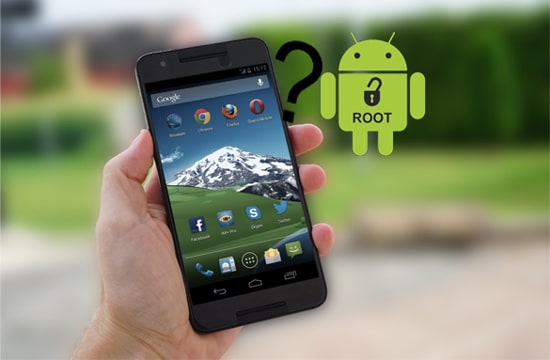
Is It Legal to Root an Android Phone? Understanding the Risks and Safety Concerns

For many Android users who want the best possible customization and speed optimization, they must be familiar with the word "root". Rooting their device gives them complete control over it, enabling them to do a variety of tasks like installing specialized programs, customizing the system, and removing pre-installed apps. However, while enjoying these conveniences, many people begin to ponder a crucial question: "Is it legal to root an Android phone?" Furthermore, "Is it safe to root my phone?" This article delves into these questions to provide you with clear answers and eliminate your doubts.

Generally speaking, it mainly depends on what you do with the root. If you root it for "hacking", then it's illegal. If you root it to customize your Android, then you haven't infringed upon others' privacy or anything else, and it's legal. Of course, different countries and regions have different legal interpretations and regulations regarding the legality of rooting Android phones.
1. USA
According to the Digital Millennium Copyright Act, 1999, the United States of America has declared it illegal to root your Android device without the permission of the manufacturer. However, if you root your device only to download and install apps that are legally available and cannot be downloaded from the official Google Play Store, then the Librarian of Congress has been given the right to grant exceptions.
2. Canada
The 2012 Copyright Modernization Act, specifies that it is illegal to tamper with digital locks in any way. However, there are exceptions for unlocking mobile phones, maintaining user privacy, interoperability and security purposes. Importing and selling any services or tools for hacking into Android devices is prohibited by the law.
3. European Union
The Free Software Foundation Europe maintains that rooting Android devices is legal. However, according to the European Union's "Computer Programs Directive", rooting is a violation of copyright. The act, however, provides an exception if rooting is solely carried out for interoperability. Simply speaking, you are safe if you root your device only to install and use apps that have been legally acquired.
4. India and New Zealand
In India and New Zealand, the situation is very similar to that of the European Union when it comes to the subject of rooting. If you're rooting your phone for purposes that don't infringe upon copyrights, then you are absolutely safe. However it is illegal when you root your phone for infringing copyright purposes.
Can you get in trouble for rooting a phone? Although root offers users heightened privileges and freedom, its security concerns cannot be overlooked.

Here are some disadvantages of rooting an Android device:
Upon rooting, the device's system protection layers may be weakened, making it more susceptible to malware and virus attacks. Some malicious apps may even gain superuser access to the device, thereby stealing users' sensitive information.
Rooted devices often cannot receive official updates and patches from manufacturers, potentially leaving them exposed to known security vulnerabilities.
As mentioned earlier, many manufacturers invalidate the warranty of rooted devices. This implies that users may not be entitled to free repair services in case of hardware or software issues.
The rooting process itself carries inherent risks. Improper operation can lead to the device failing to boot properly or even turning into a "brick", effectively rendering it unusable. (You may want to know how to recover data from bricked phone.)
So, after understanding the legality and security of the root, should one proceed with it? This question does not have a straightforward answer. For some tech enthusiasts and users who require deep customization of their devices, root might be a viable option. However, for average users, especially those less familiar with technology, the risks of root may far outweigh its benefits.

Here are a few factors to consider before deciding whether to root:
In general, the legality of rooting an Android phone depends on the laws and regulations of the country or region where it is located, but in most cases, it is not directly illegal. However, the safety aspect hinges on the user's technical proficiency and usage requirements. For skilled users with specific needs, rooting can offer immense freedom and convenience, but for average users, it may entail more risks and complications. Rooting is indeed a double-edged sword. Therefore, before making a decision, we should carefully consider all factors involved. We hope this article helps you better understand the legality of rooting an Android phone. If you have any questions or require further information, please feel free to leave a message below.
Related Articles:
8 Best Android Rooting Software for You to Root Android
Is My Phone Rooted? 7 Ways to Check If Device Is Rooted